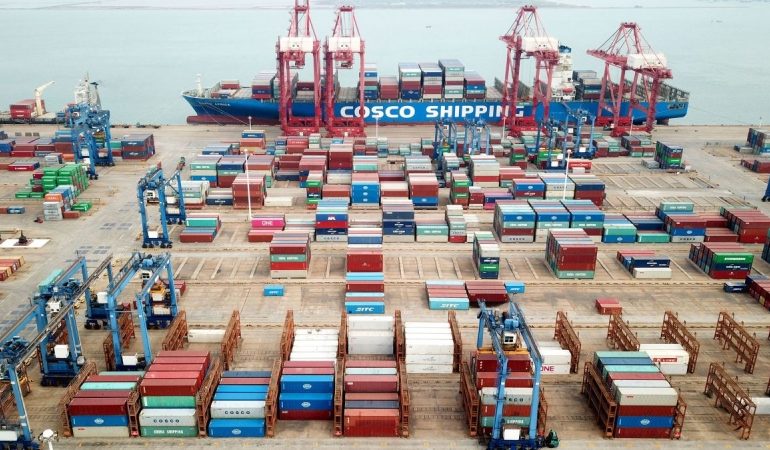The coronavirus pandemic has dragged China’s economy into its worst three-month period in decades — and the road toward recovery will likely be long. But the country may still eke out some growth this year, unlike its Western counterparts.
The world’s second largest economy shrank 6.8% in the first quarter of 2020 compared to a year earlier, according to government statistics released Friday. That’s slightly worse than analysts polled by Refinitiv were expecting, and amounts to about 693 billion yuan ($98 billion) in lost output.
While a contraction was expected, it’s still a historic moment for China. The plunge is the worst for a single quarter that China has recorded since it started publishing those figures in 1992. It’s also the first time China has reported an economic contraction since 1976, when Communist Party leader Mao Zedong’s death ended a decade of social and economic tumult. The economy shrunk 1.6% that year.
China’s three major engines for growth — consumer spending, exports and fixed asset investment — all sputtered as large swaths of the country were placed on lockdown in late January and early February to contain the spread of the virus. Retail spending dropped 19% last quarter, while exports plunged more than 13%. Fixed asset investment declined 16%.
A barometer for the world
The country’s quarterly economic report is in some ways a barometer for the United States and Europe, which began to feel the full impact of the pandemic as the situation in China was starting to improve. While Beijing has faced criticism for its alleged lack of transparency early on in the pandemic, the country has been reporting a shrinking number of locally transmitted infections. And a lockdown on Wuhan — ground zero of the pandemic — was lifted earlier this month.
Still, China is far from returning to normal. There are still restrictions in place for many cities, even those that have come off lockdown. And economic data for March, while an improvement over the first two months of the year, suggest the recovery is tentative. Industrial output and exports, for example, remained weak as the rest of the world contends with disruption caused by the virus.
“The March data add to broader signs that China’s economy is past the worst,” wrote Julian Evans-Pritchard, senior China economist for Capital Economics, in a research note. He added, though, that China may still not be fully acknowledging the extent of the downturn.
China’s labor market continues to show signs of strain. The unemployment rate, which tracks jobless numbers in urban areas only, jumped to 5.9% in March — better than February’s record high of 6.2%, but still worse than the 5.2% China recorded in December. That means 3.6 million more people were out of work in March compared to the end of last year, according to a CNN Business calculation using government data.
“China is in for a drawn-out recovery,” Evans-Pritchard added.













